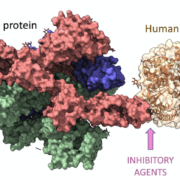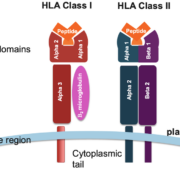The Role of HLA Typing in Understanding the HLA-A*24:02:01:01 Allele
Human leukocyte antigen (HLA) typing is a critical process in immunogenetics, enabling the identification of specific alleles within the HLA system. This system, integral to the adaptive immune response, is highly polymorphic, with numerous alleles contributing to the diversity of immune responses among individuals. The HLA-A*24:02:01:01 allele is one such variant within the HLA-A gene locus, and understanding its nature and implications requires advanced HLA typing techniques.
HLA Typing: A Gateway to Allelic Discovery
HLA typing has evolved significantly with advancements in technology, particularly with the advent of next-generation sequencing (NGS). This high-resolution method allows for the detailed analysis of HLA alleles, including HLA-A*24:02:01:01, providing insights into allele frequencies across different populations and their potential associations with diseases. The precision of HLA typing is crucial for various applications, from organ transplantation to disease association studies, making it a cornerstone of modern immunogenetics.
The Significance of HLA-A*24:02:01:01
The HLA-A*24:02:01:01 allele, like other HLA alleles, plays a significant role in the immune system’s ability to recognize and respond to pathogens. The specific peptide-binding properties of this allele can influence an individual’s susceptibility to certain diseases or conditions. Moreover, in the context of organ transplantation, the compatibility of HLA alleles between donor and recipient can significantly impact the success of the transplant, highlighting the importance of accurate HLA typing
Advances in HLA Typing and Their Impact
The continuous improvement in HLA typing methodologies, including the refinement of NGS and the development of sophisticated bioinformatics tools, has enhanced our ability to identify and characterize HLA alleles with unprecedented accuracy. These advancements not only facilitate better matching in transplantation but also improve our understanding of the genetic basis of immune responses and disease susceptibility.
Challenges and Future Directions
Despite significant progress, challenges remain in HLA typing, such as the need for standardization across laboratories and the interpretation of complex allele combinations. The ongoing development of more sensitive and efficient typing methods, coupled with the expansion of HLA allele databases, promises to overcome these challenges. As we move forward, the role of HLA typing in personalized medicine and immunotherapy is expected to grow, underscoring the importance of detailed knowledge of alleles like HLA-A*24:02:01:01.
Conclusion
The HLA-A24:02:01:01 allele exemplifies the complexity and diversity of the HLA system. Through advanced HLA typing techniques, researchers, and clinicians can unlock the potential of this allele and others within the HLA system, paving the way for improved patient care and a deeper understanding of the human immune response. As the field of HLA typing continues to evolve, the insights gained from studying alleles such as HLA-A24:02:01:01 will undoubtedly contribute to the advancement of immunogenetics and personalized medicine.

 The Sequencing Center
The Sequencing Center




 The Sequencing Center
The Sequencing Center The Sequencing Center
The Sequencing Center The Sequencing Center
The Sequencing Center
Leave a Reply
Want to join the discussion?Feel free to contribute!